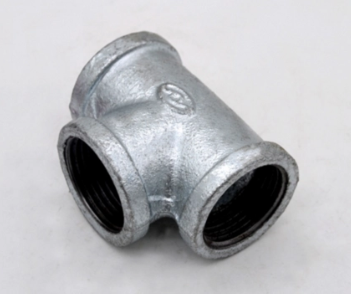Silicone Hose Manufacturing: Innovating Fluid Transfer Solutions
Learn about the applications of these hoses in the automotive, medical, and industrial sectors. From customizations to quality control, understand the manufacturing process that ensures reliable and efficient fluid transfer solutions. Unlock the potential of silicone hose manufacturing to optimize your systems and meet the demands of your industry.
The Benefits of Silicone Hoses
Durability and Longevity:
Silicone hoses are popular for their exceptional durability, making them ideal for demanding applications. They can withstand high pressure, extreme temperatures, and exposure to various chemicals without degradation. This durability ensures long-lasting performance and minimizes the need for frequent replacements. Therefore, silicone hose manufacturing is of great significance to industrial production.
Flexibility and Versatility:
Silicone hoses offer excellent flexibility, allowing easy installation and maneuverability in complex systems. Their versatility enables them to adapt to different shapes and sizes, ensuring a secure fit. This flexibility simplifies the installation process and reduces the risk of leaks or malfunctions.
Temperature and Chemical Resistance:
Silicone hoses exhibit remarkable resistance to extreme temperatures, both high and low. They can effectively handle hot fluids or gases without deformation or damage. Additionally, these hoses are highly resistant to chemicals, including oils, fuels, and solvents, ensuring compatibility with various substances.
Applications of Silicone Hoses
Automotive Sector:
These hoses transport coolant, air, and other fluids, ensuring efficient engine performance and temperature regulation. Their durability and resistance to high temperatures make them indispensable in automotive applications.
Medical and Pharmaceutical Fields:
Silicone hoses play a critical role in medical and pharmaceutical applications. They are popular in fluid transfer systems, such as drug delivery devices, intravenous (IV) therapy, and peristaltic pumps. Silicone hoses provide a safe and reliable solution, as they are biocompatible, non-toxic, and resistant to sterilization methods.
Industrial and Manufacturing Applications:
Silicone hoses find extensive use in industrial and manufacturing processes. They also apply in the industry of machinery and equipment for fluid transfer, cooling, and ventilation systems. From food processing to chemical manufacturing, silicone hoses ensure efficient fluid transportation and temperature control, contributing to smooth operations.
![]()
Silicone Hose Manufacturing Process
Design and Customization:
The manufacturing process begins with designing the silicone hose, considering specific requirements and applications. Customization options include hose diameter, length, reinforcement layers, and end fittings. This ensures a tailored solution that meets the exact needs of the customer.
Material Selection and Mixing:
Choosing high-quality silicone materials for manufacturing. These materials undergo precise mixing to achieve the desired properties, such as flexibility, durability, and resistance to temperature and chemicals. Advanced mixing techniques ensure uniform distribution of additives for consistent performance.
Extrusion and Vulcanization:
The mixed silicone compound is then extruded through specialized machinery to create the desired hose shape and dimensions. During the extrusion process, the hose is vulcanized, which involves subjecting it to controlled heat and pressure. Vulcanization enhances the hose’s strength and durability.
Quality Control and Testing:
Stringent quality control measures are implemented throughout the manufacturing process to ensure the highest standards. The finished silicone hoses undergo rigorous testing, including checks for dimensional accuracy, pressure resistance, temperature stability, and chemical compatibility. This guarantees the reliability and performance of the manufactured hoses.
Conclusion
In conclusion, silicone hose manufacturing offers significant benefits, including durability, flexibility, and resistance to extreme temperatures and chemicals. These hoses find applications in the automotive, medical, and industrial sectors, providing reliable fluid transfer solutions. From the design stage to quality control, the manufacturing process ensures customized and high-quality silicone hoses. By leveraging silicone hose manufacturing, businesses can optimize their systems, improve efficiency, and meet the demanding requirements of their respective industries. Embrace the potential of silicone hose manufacturing to enhance your fluid transfer applications.


